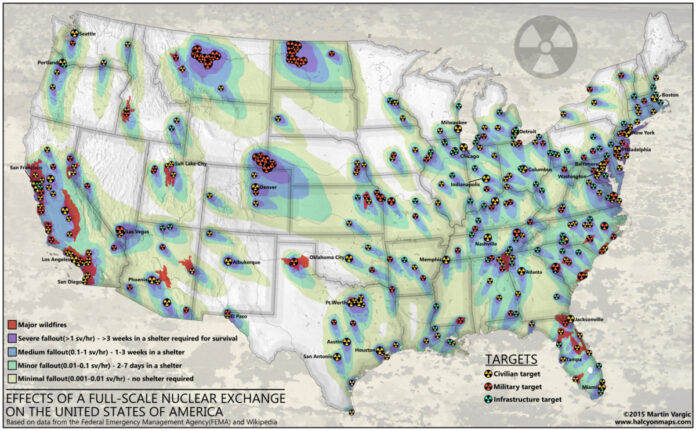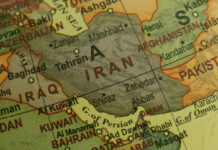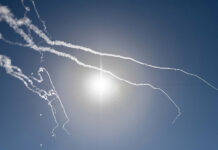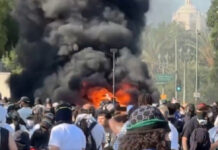
If you’ve been following this blog long enough, you know that in 2020 we moved to a house with wood heat and gravity-fed spring water on just less than 20 acres. It is on the side of a mountain well off the beaten track somewhere in the Appalachians. The water, wood heat, acreage and remoteness were all things on our prepper want list.
We’re happy here, and I don’t plan to move, but given the changes in the past two years, I can think of some things that would make it on my want list today if I were to look for a new place. If you are looking for prepper property, here are some things to consider in addition to those I wrote about in April 2020.
Energy Reliability and Continuity
Energy continuity has become far more important than it was three to five years ago when we did most of our looking. Trump was still president and fossil fuels were doing fine. Now, as states and companies emphasize solar and wind power, the possibility of intermittent power outages and even system collapse is higher than ever before in our lifetimes. Today, you should consider how your power is generated and where it comes from when evaluating a future prepper property.
Living near a hydropower plant would be an excellent option. Areas near large dams that get most of their electrical power from hydropower are less likely to be dependent on solar or wind power, both of which are intermittent and might be offline when you need them most. While reservoirs sometime get too low to turn the turbines, as we have seen out West, this remains a rare occurrence.
Alternatively, you might look for a site in which you could install your own hydropower system. Because we live on a steep mountainside with multiple streams, we could probably hook up one or more micro hydropower generators. It can be costly, but my guess is it would be less expensive for the kilowatts produced per day than an equivalent solar power system. Waterpower works 24×7 in all but the very coldest temperatures; solar and wind do not. Even if you produce only 1,000 watts per hour, that’s 24,000 watts per day. That will charge up your battery bank pretty fast!
If hydropower isn’t a good option, look for southern exposure so you can hook up solar, or a windy location to set up your own wind generator.
Plentiful Water
Even if hydropower isn’t on your list, a plentiful supply of water should be. And while “natural surface water” was on our original list, I think I’d add “that is unlikely to be affected by a drought.” Sure, a drought can hit anywhere, but the desert Southwest is going to see far more droughts than Alaska or Maine.
Of course, many of the wilderness areas, especially those that are heavily forested, have plentiful rainfall and natural water. Living in or just outside one of these areas is a win-win. Not only do you have nearby land for hunting and seeking edible vegetation, you are more likely to have a secure source of water.
Having a well is great. I drank well water for 25 or more years of my life, but as a prepper you need a solar or manual backup option, maybe even both. Don’t rely on utility power to provide you with water because they day may come when it won’t be there.
Gas and Oil Wells
Even before fracking, some rural residents in Pennsylvania and parts of West Virginia had gas wells or oil wells on their property. (Unfortunately, this is not an option for us.) Many times, the people with gas wells got free natural gas for their property.
If you are lucky enough to find one of these properties, then having a natural gas powered whole-house generator makes sense. So does stocking lots of spare parts.
I’ve never been to oil country in Texas, Oklahoma or Canada, but I can’t help but think there could be some advantages to having your own source of hydrocarbons handy in a post SHTF world. For example, you could build a steam engine that would run on crude and then use the engine to power an alternator or generator.
Avoid Nuclear Target Areas
Five years ago, no one was worried about living in what might be a target for Russian nuclear missiles. Today, I’d be worried. Just goes to show you how fast things can change.
There are maps online and in reference books that will show you expected targets for enemy warheads and resulting fallout (here is one example and here is another which we pictured above), but these are just guesses. Of course, some guesses, like our Minute Man missile fields and key naval and air bases, are pretty obvious. Still, maps like these may be helpful in telling you where not to settle.
Besides avoiding targets of military value, this is yet another reason to avoid large cities. I can’t imagine a war in which an adversary doesn’t target New York, Washington, Los Angeles, and other large cities.
Finally, avoid living downwind from nuclear power plants. If these are not targets, a loss of the grid and potential EMP effects could cause a meltdown.
Trade-Offs and Compromises
No matter how long you look, you’ll never find your perfect place. Even if you build your own place, there will be things you come to wish you had done differently. The key is to make compromises you can live with.
One thing on our list we didn’t get was a propane stove and oven. After we moved in, we looked into it and decided not to make that change, at least not right now. If all our appliances die, we may reconsider. For now, we’re happy with the induction cook top. In a TEOTWAWKI situation, we’ll cook on an outdoor rocket stove when it is hot and on the wood stove when it is cold. Ideal? No, but doable.
We also do not border state land or a park, an original goal, but we’re satisfied that there is enough undeveloped (and pretty much undevelopable) land around here that it won’t grow too crowded.
In hindsight, the one thing I wish we hadn’t compromised on was our desire for “a mixture of pasture and woodland.” We don’t have pasture and we could use more flat land for a larger garden. We can make do, but if we end up with 8 or 10 people living here in a post-SHTF scenario, we’ll wish we had more acreage. My guess is that we’ll be helping our neighbors garden on their property because they have more open space and not enough manpower.
At the end of the day, we’re glad to be here. We are comfortable, happy and feel safe, and that’s what matters.






